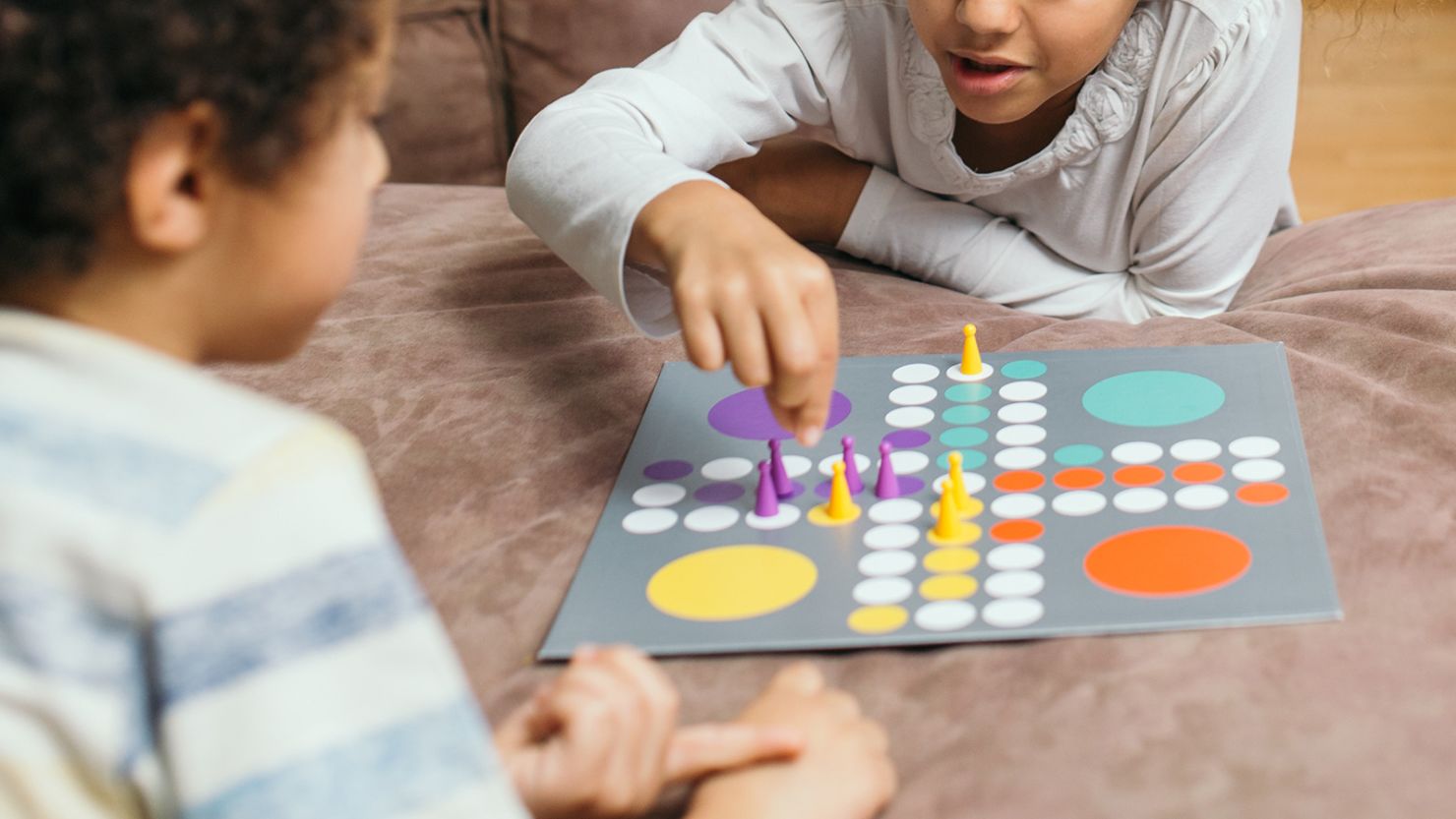Editor’s Note: Sign up for CNN’s Wonder Theory science newsletter.?Explore the universe with news on fascinating discoveries, scientific advancements and more.
Roll the dice, land on Pennsylvania Avenue and count your money to see if you have enough to buy that property.
Monopoly may be teaching your children more than you know.
A study published last week in the journal Early Years shows that playing board games can help young kids build stronger math abilities.
The researchers reviewed 19 studies that looked at the individual impact of 25 games on learning. In about 32% of the games, kids saw a significant improvement in math ability compared with those who did not play them, the study showed.
The studies introduced games such as Dominoes, Chutes and Ladders, and The Great Race. The studies in the review used several different tests adopted in early education to measure things such as arithmetic speed and accuracy.
Children playing about 52% of the games showed improvement in their math skills after playing them, said lead study author Jaime?Andrés Balladares Hernández, assistant professor of education at Pontifical Catholic University of Chile.
“It might seem a modest finding compared to results in other areas,” Balladares said in an email. “However, these interventions were generally brief, averaging 20 minutes per day, twice a week, for a month and a half, which is a promising result.”
Investing in bringing board games into schools could be a powerful way to improve results and make learning more fun, Balladares said.
“Regarding the home, playing?board?games?is always a good excuse to talk with the family (and) connect with others,” he added.
Why board games work
Think back about your time playing Monopoly and The Game of Life.
You roll a set of dice and add up the numbers, and then you count the number of spaces you can move. Maybe you keep track of how much play money you have.
These seemingly unremarkable steps in gameplay are exposing young children to multiple representations of numbers, said Doug Clements, distinguished professor and chair in the department of early childhood learning at the University of Denver. Clements was not involved in the study.
“If you roll a six as opposed to the four, you see more dots, you count more dots, you move on the path, and it takes longer,” he added. “There’s a time and a distance factor that all connects to show you the relationship between six and four.”
It isn’t clear if you have to do this with a board game or if you can play online, like many classrooms do, Balladares said.
Technology is not a bad thing, Clements said. Some virtual games can be designed to supplement or capture the experience of playing a board game, but it has to be done thoughtfully.
“Recent studies show that excessive use of these devices in young children can be potentially harmful,” Balladares said. “It is necessary that both the companies and the policymakers collaborate in developing?board?games (that are) contextually situated, fun, and that are associated with learning objectives.”
The study did not review online games, so the same benefits cannot be assumed, he added.
Instructions for play
Whether you are a “study the instruction book” or “throw them out and play house rules” family, there are right and wrong ways to play games to maximize learning benefits, Clements said.
The first step is to find the right game. Chutes and Ladders, for example, relies on a spinner with different colors that tells players where to place their piece, so kids don’t get to work with numbers, he said.
The next key is to adjust the game for your child’s level. Maybe you roll dice or get a number spinner for Chutes and Ladders, Clements said. Or perhaps you go from one die to two dice so that children have to add up the numbers to get their movements.
Families can make the games progressively more challenging as children grow and learn, but it is important to keep playing, he added.
“The repeated experiences kids have with them are what really helps build their conceptual growth,” he said.
The most important thing, however, is that families talk and play together, Clements said.



